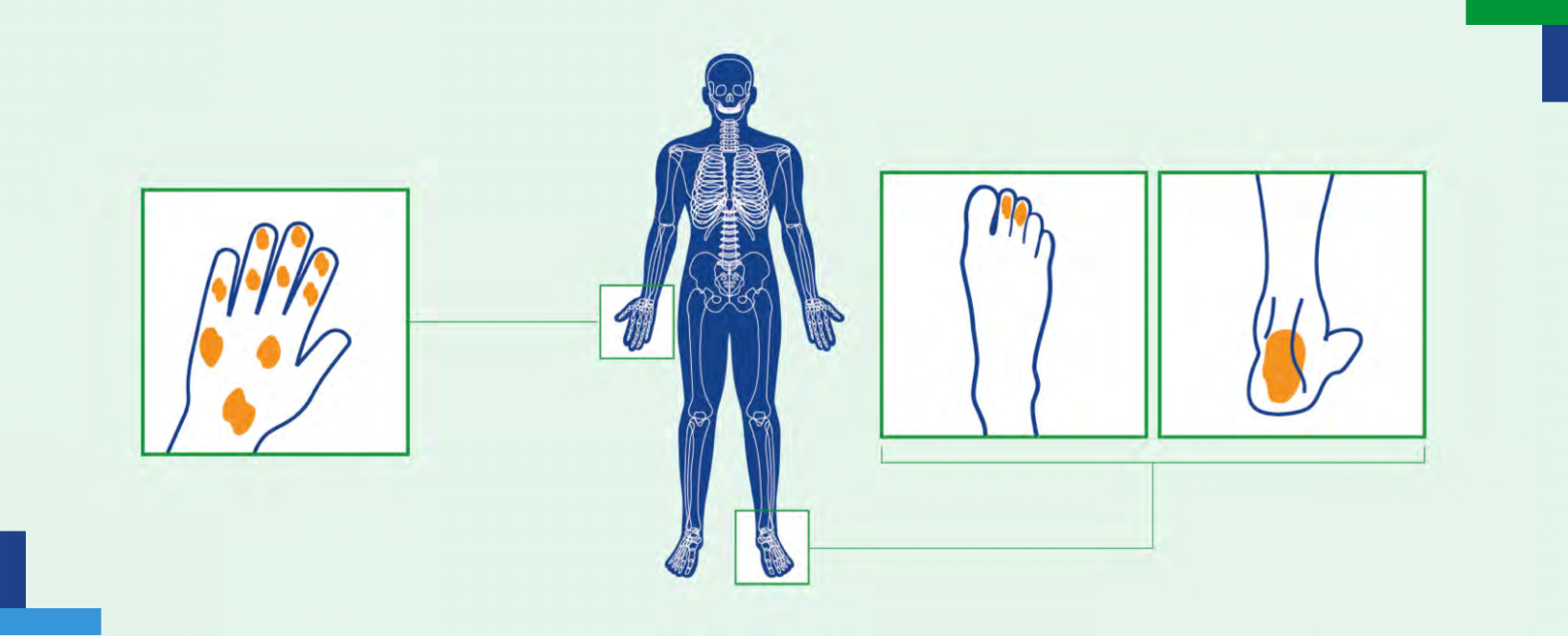What is PsA?
What is PsA?
Psoriatic arthritis [pronounced sorr-eye-at-ick arth-rye-tis], also called PsA, is a chronic, or ongoing, immune-mediated (caused by the immune system*) inflammatory disease that affects the joints.
In PsA, the body’s immune system attacks its own joints
In people with PsA, the immune system targeting its own joints causes pain, swelling, fatigue and stiffness in the joints, which may restrict your movement and make it difficult to do simple things. PsA can affect many joints in the body or only a few – it’s different for everyone and can change over time. People with PsA may also have skin psoriasis.

How psoriatic arthritis affects the body
About 80% of people with PsA also have skin psoriasis, but they don’t always develop at the same time
Neither PsA nor psoriasis (Pso) is contagious, but it can mean that you stand a greater risk of developing some other disease, such as diabetes, cardiovascular disease, inflammatory intestinal disease, auto-immune eye disease, fibromyalgia or depression.
You maybe be interested in

Make every moment of the consultation really count.

Does psoriatic arthritis (PsA) always stay the same?

You’re not alone – there are other patients with psoriatic arthritis, just like you out there.
* The immune system is a complex set of cells and molecules designed to defend the body against foreign substances including cancer cells, toxins and parasites. When the system turns towards body (so-called `self`) components, immune-mediated inflammatory diseases occur. Examples of these are rheumatoid arthritis, psoriasis, psoriatic arthritis and multiple sclerosis.
